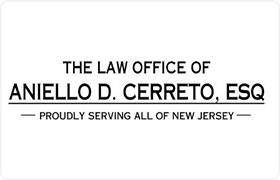HEAD OF HOUSEHOLD
A person who supports and maintains, in one household, one or more people who are closely related to him by blood, marriage or adoption. Under federal income ta...
(more...)A person who supports and maintains, in one household, one or more people who are closely related to him by blood, marriage or adoption. Under federal income tax law, you are eligible for favorable tax treatment as the head of household only if you are unmarried and you manage a household which is the principal residence (for more than half of the year) of dependent children or other dependent relatives. Under bankruptcy homestead and exemption laws, the terms householder and 'head of household' mean the same thing. Examples include a single woman supporting her disabled sister and her own children or a bachelor supporting his parents. Many states consider a single person supporting only himself to be a head of household as well.
 x
x

 Aniello Cerreto Manalapan, NJ
Aniello Cerreto Manalapan, NJ AboutThe Law Office of Aniello D. Cerreto, Esq.
AboutThe Law Office of Aniello D. Cerreto, Esq. Practice AreasExpertise
Practice AreasExpertise
